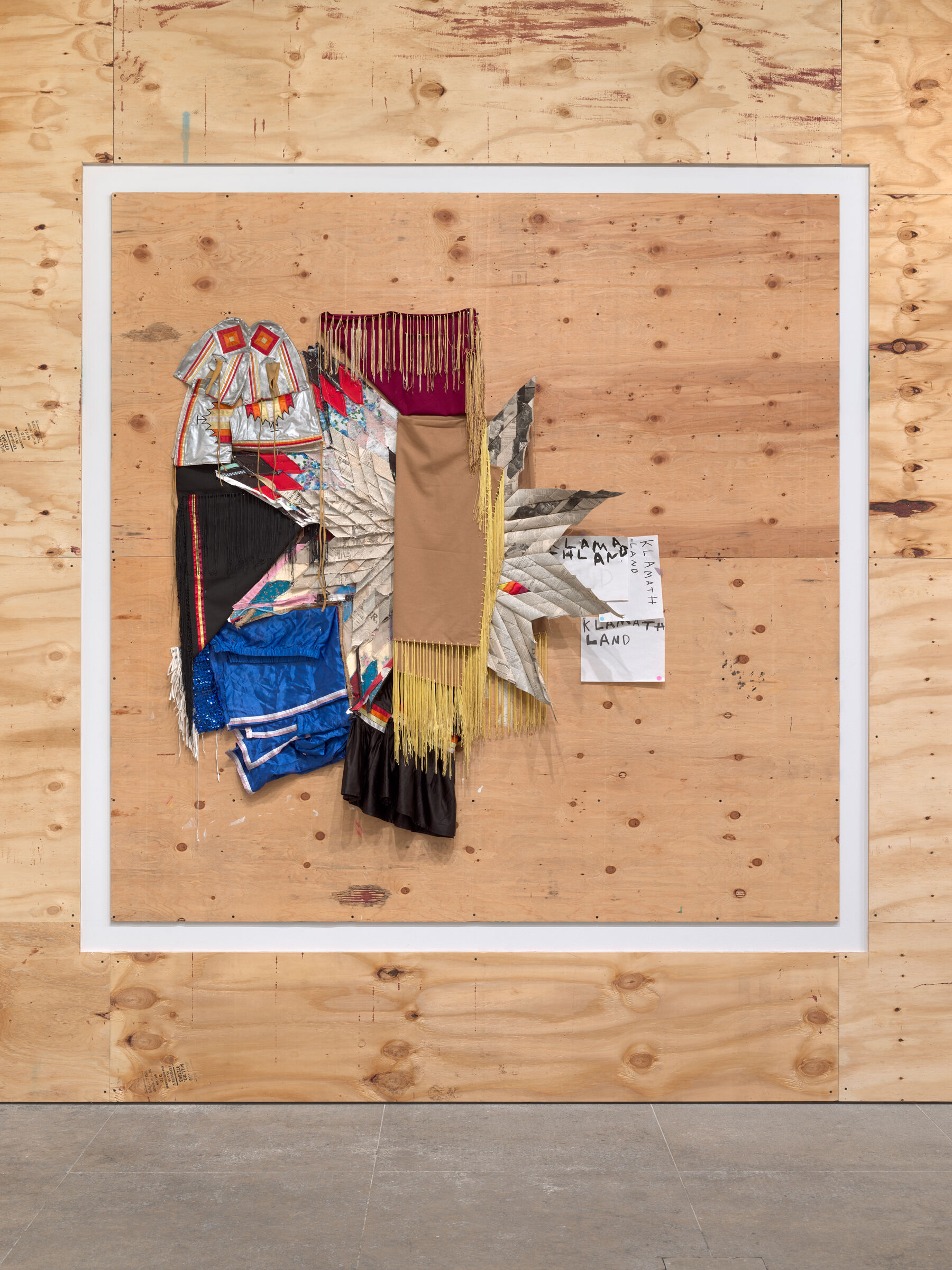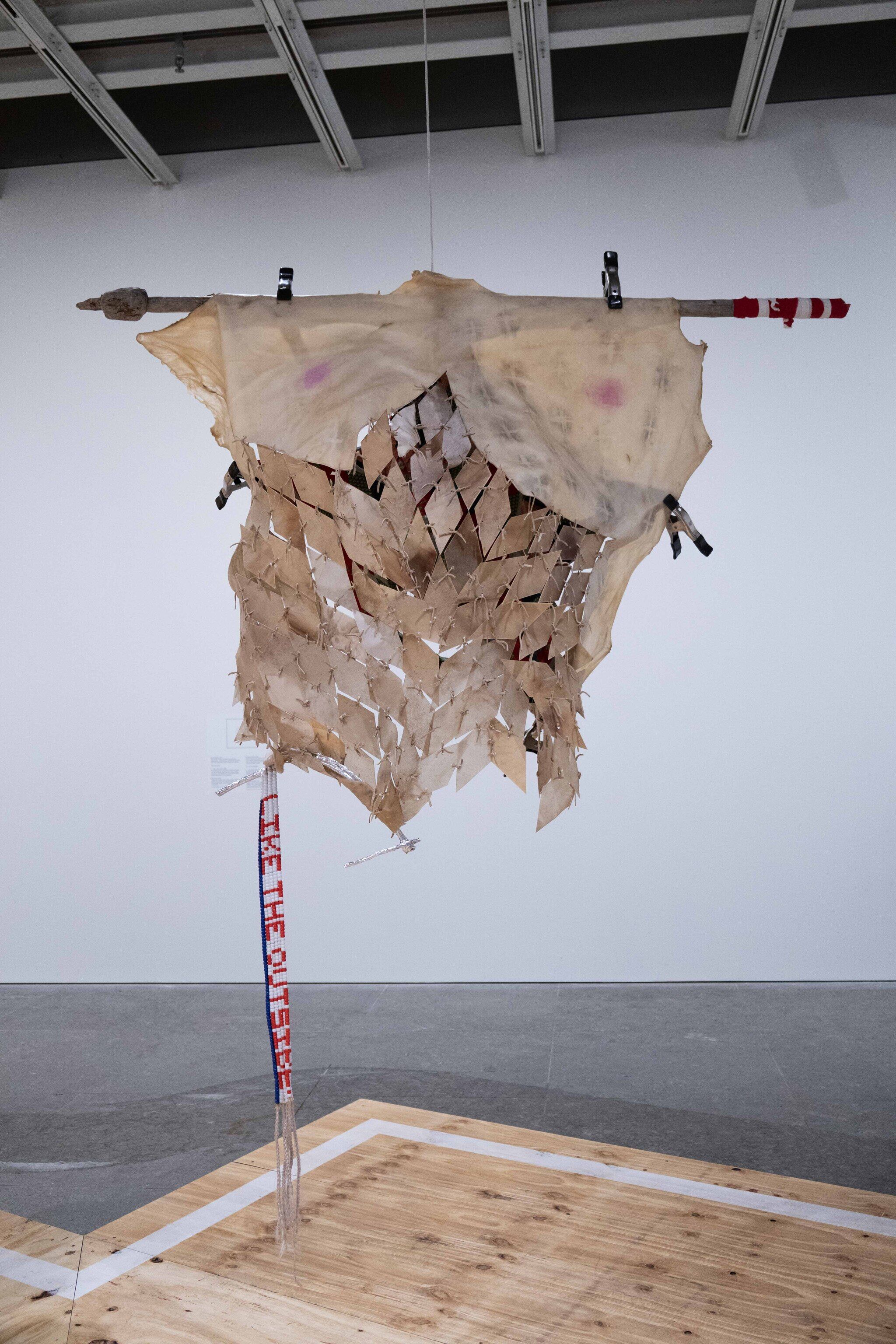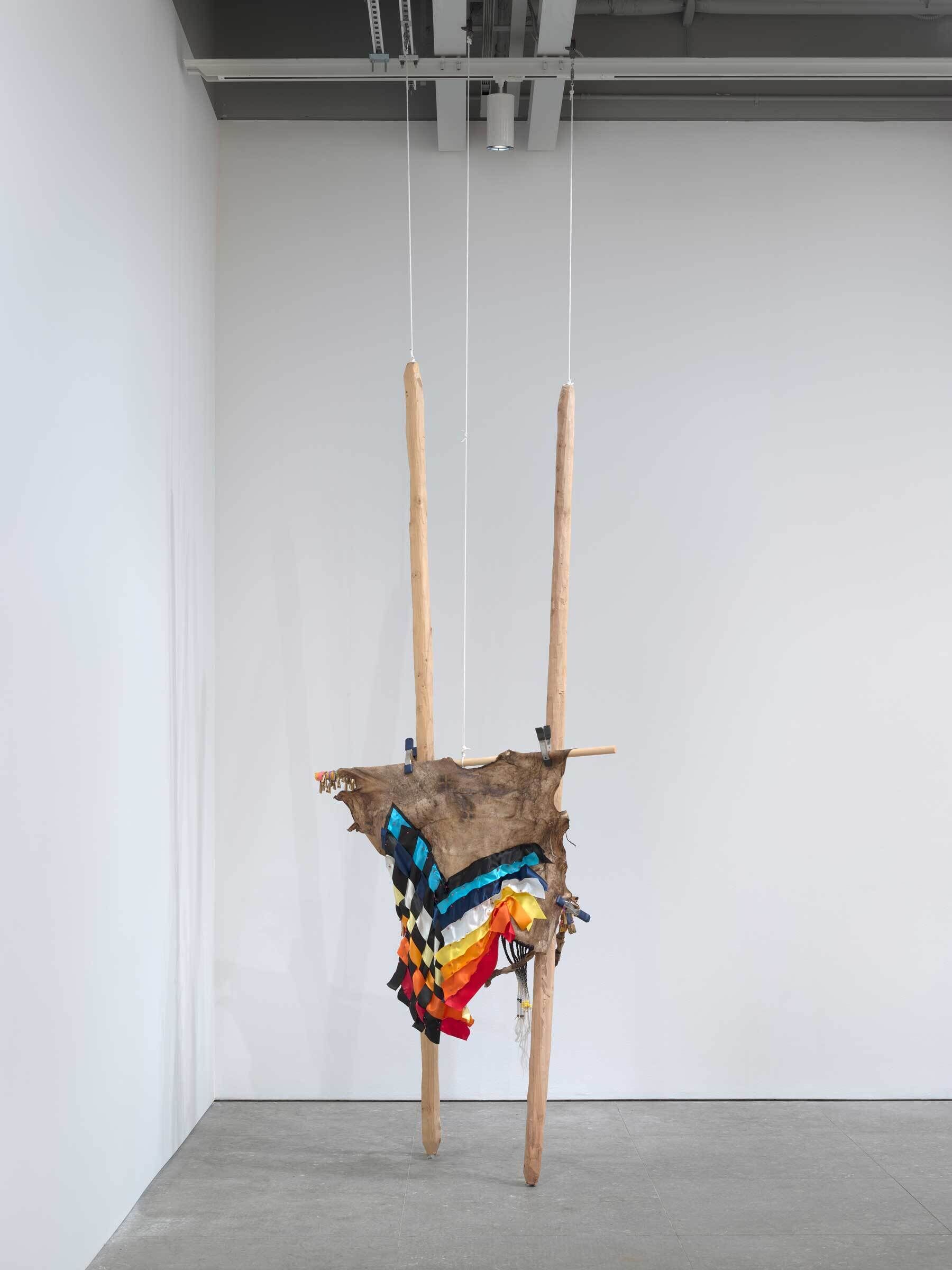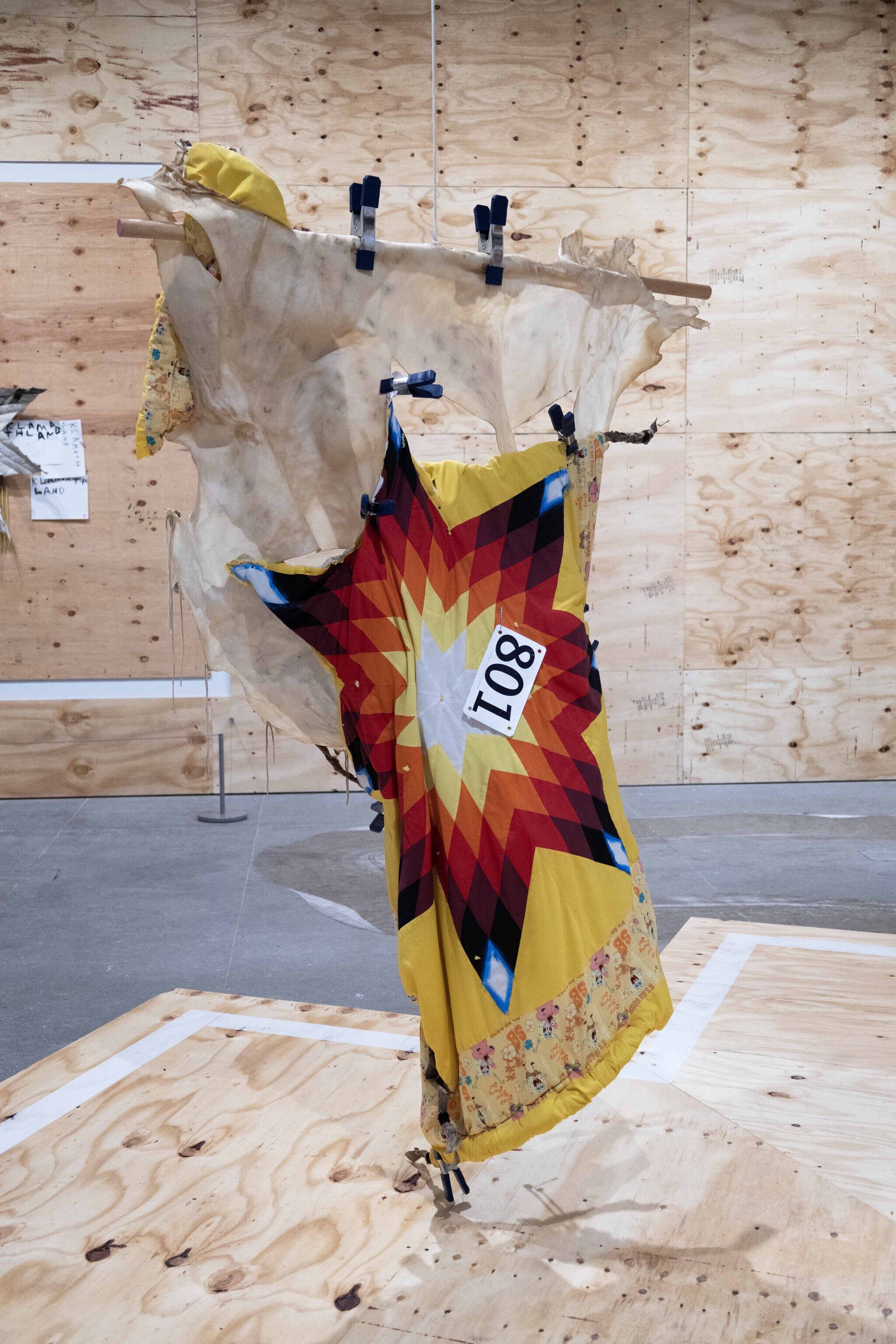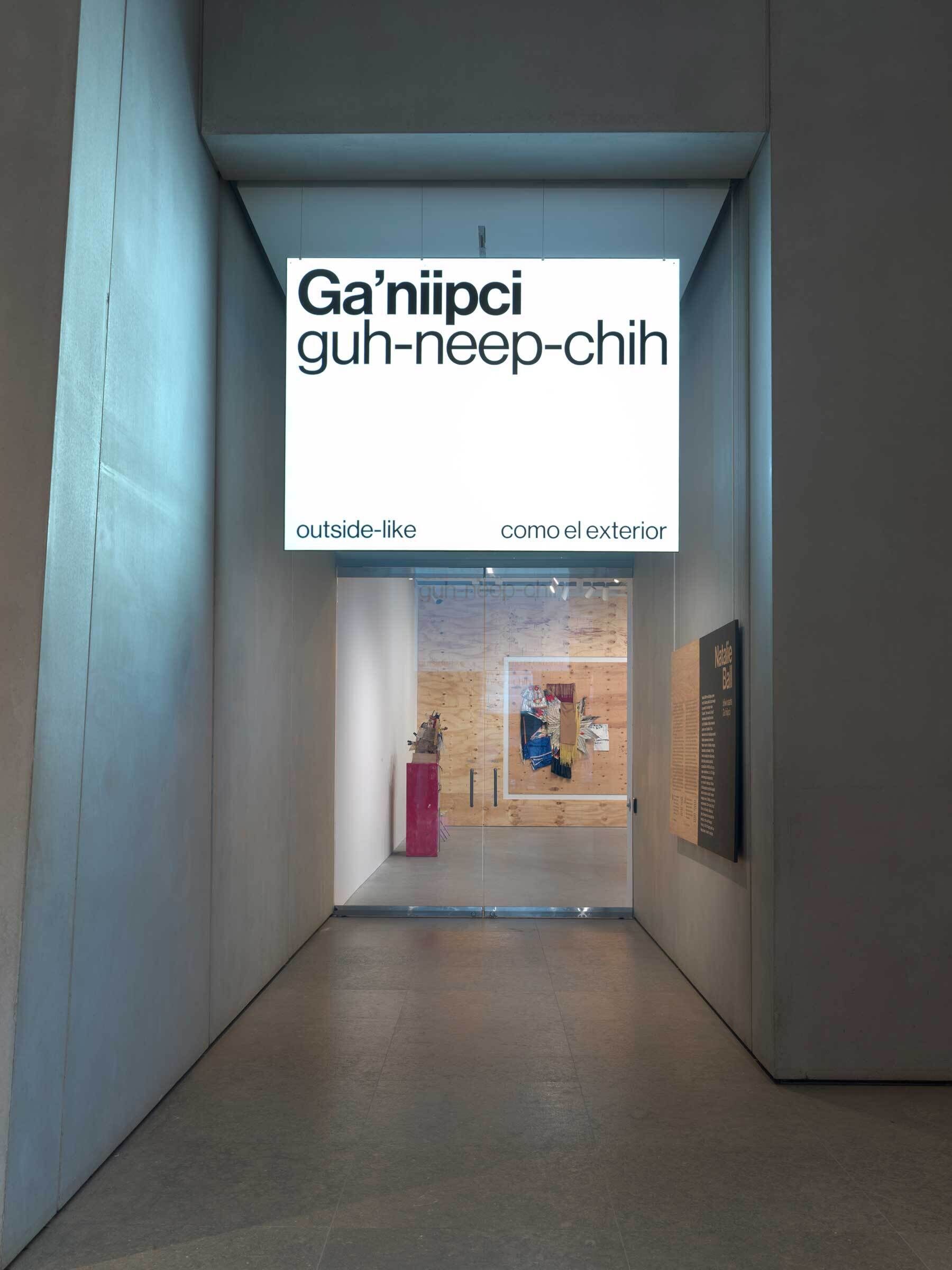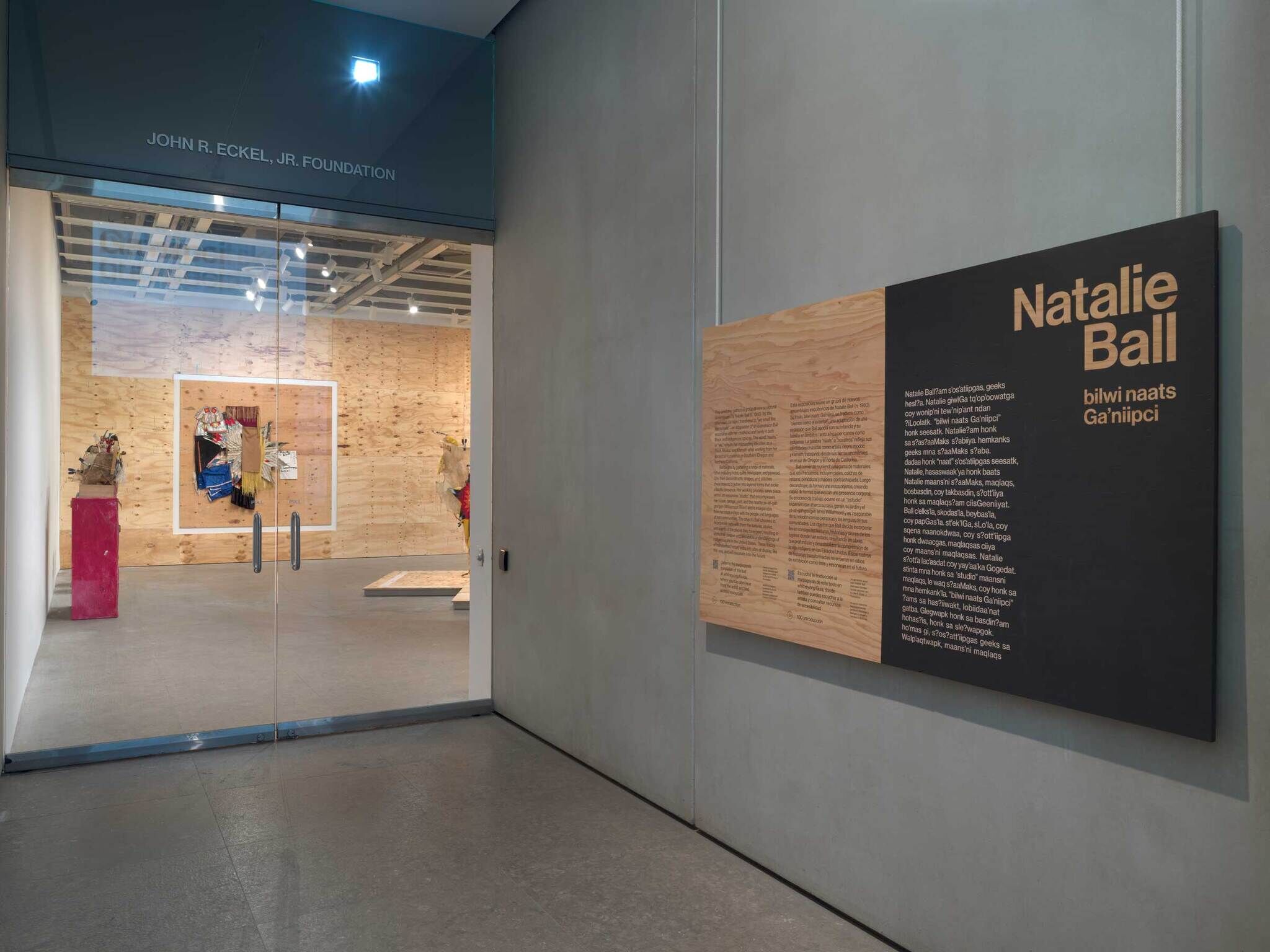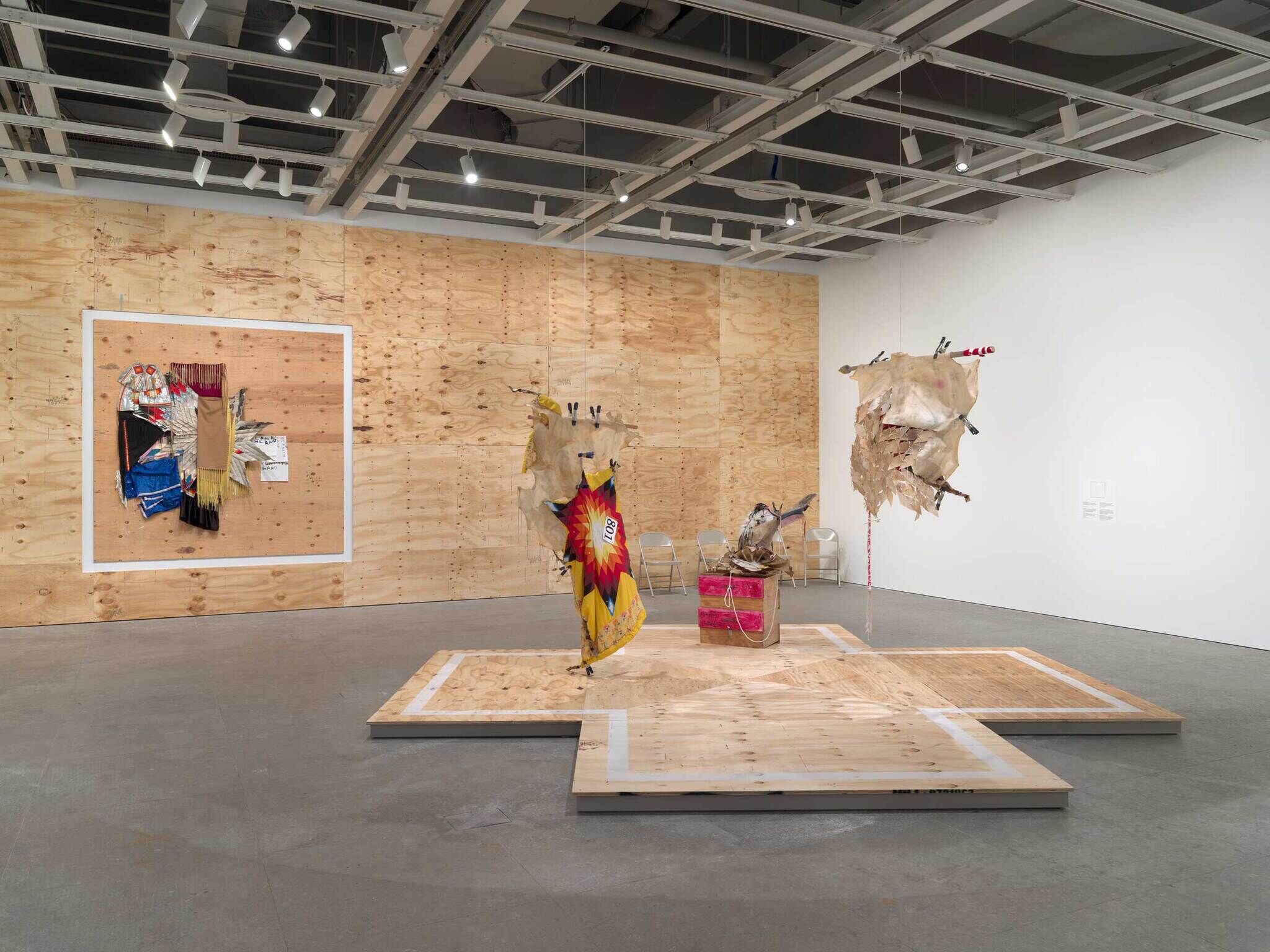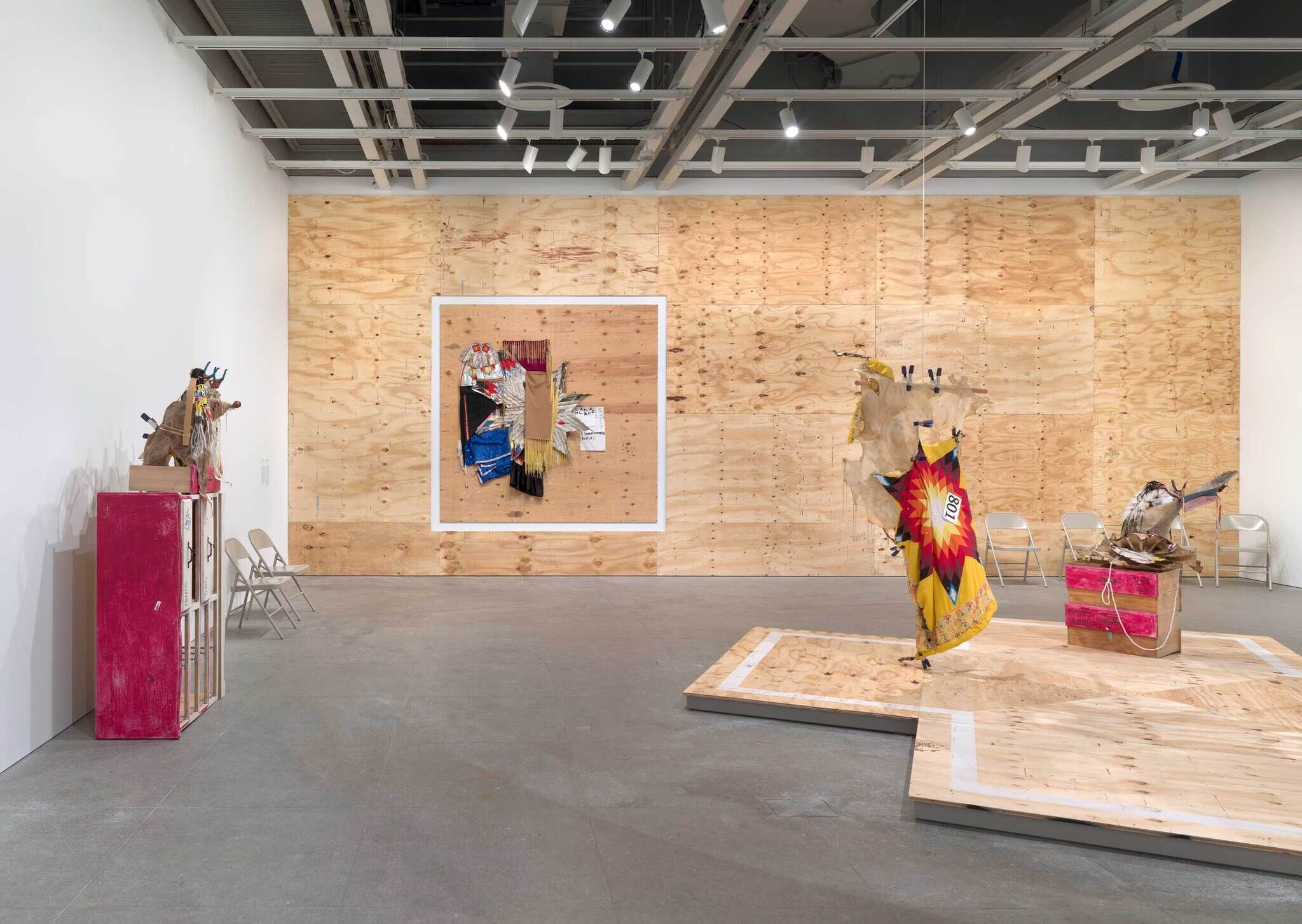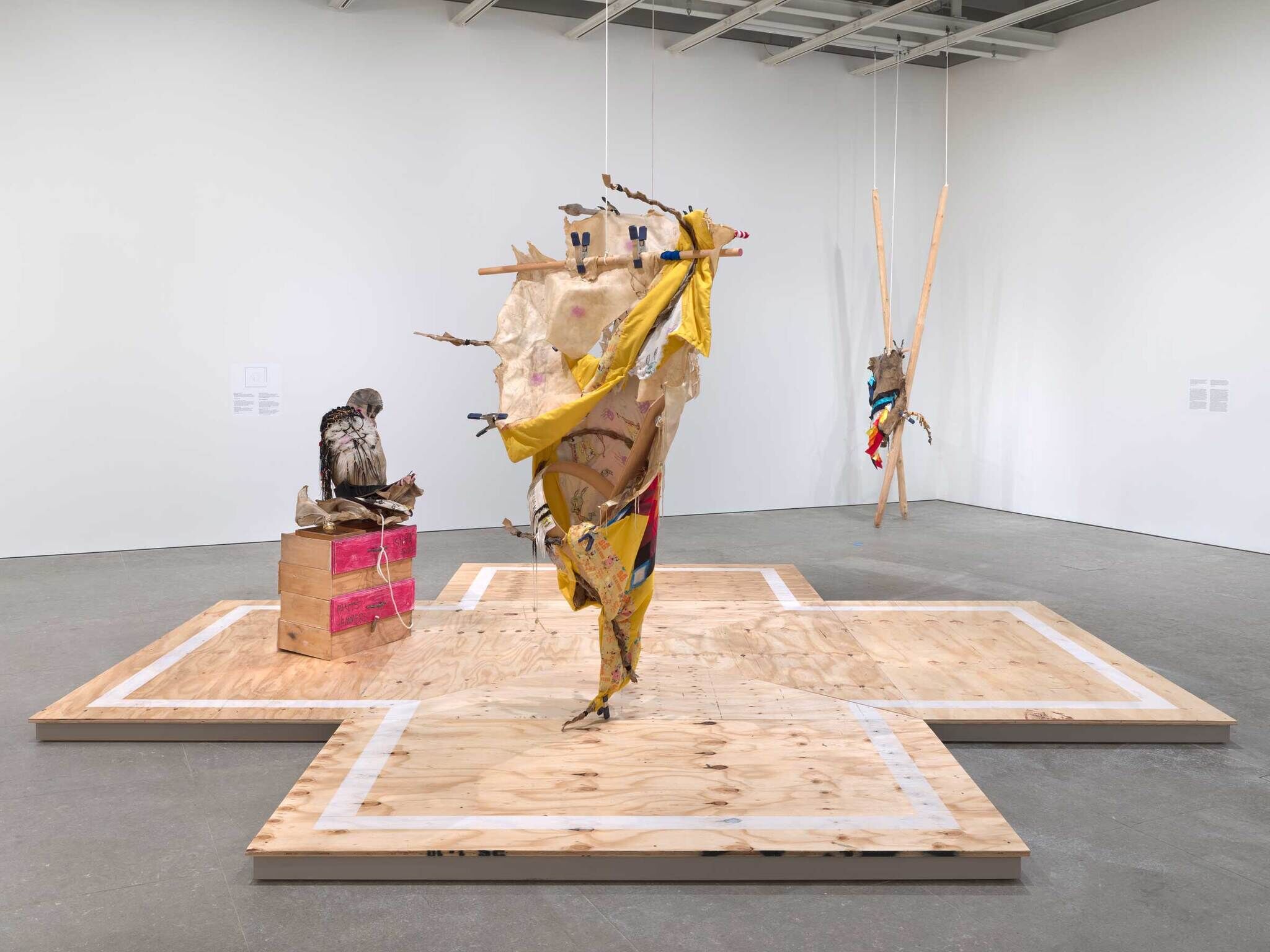Natalie Ball: bilwi naats Ga’niipci
Nov 17, 2023–Feb 19, 2024
This exhibition gathers a group of new sculptural assemblages by Natalie Ball (b. 1980). Its title, bilwi naats Ga’niipci, translates to “we smell like the outside”—an adaptation of an expression Ball associates with her childhood and family in both Black and Indigenous spaces. The word “naats,” or “we,” reflects her intersecting identities as a Black, Modoc, and Klamath artist working from her ancestral homelands in Southern Oregon and Northern California.
Ball begins by gathering a range of materials, often including hides, quilts, newspaper, and plywood. She then deconstructs, shapes, and stitches these objects together into layered forms that evoke a bodily presence. Her working process takes place within an expansive “studio” that encompasses her house, garage, yard, and the nearby ya-ah-gah goo’geh (Williamson River) and is inseparable from her relationships with the people and languages of her communities. The objects Ball chooses to incorporate carry with them the textures, stories, and scents of the places they have been, resulting in works that deepen and destabilize understandings of Indigenous life in the United States. These traces of transformed history echo into sites of display, like this one, and will resonate into the future.
This exhibition will be on view in the Museum’s Lobby gallery, which is accessible to the public free of charge, as part of the Whitney Museum’s enduring commitment to support and showcase the most recent work of emerging artists.
This exhibition is organized by Jennie Goldstein, Jennifer Rubio Associate Curator of the Collection, with Rose Pallone, Curatorial Assistant.
Generous support for Natalie Ball: bilwi naats Ga’niipci is provided by the John R. Eckel, Jr. Foundation.
Additional support is provided by Becky Gochman and Bernard I. Lumpkin and Carmine D. Boccuzzi.
In maqlaqsyals (Language of the People)
Natalie Ball?am s’os’atiipgas, geeks hesl?a. Natalie giwlGa tq’op’oowatga coy wonip’ni tew’nip’ant ndan ?iLoolatk. “bilwi naats Ga’niipci” honk seesatk. Natalie?am honk sa s?as?aaMaks s?abiiya. hemkanks geeks mna s?aaMaks s?aba. dadaa honk “naat” s’os’atiipgas seesatk, Natalie, hasaswaak’ya honk baats Natalie maans’ni s?aaMaks, maqlaqs, bosbasdin, coy takbasdin, s?ott’iiya honk sa maqlaqs?am ciisGeeniiyat. Ball c’elks’la, skodas’la, beybas’la, coy papGas’la. st’ek’lGa, sLo’la, coy sqena naanokdwaa, coy s?ott’iipga honk dwaacgas, maqlaqsas ciiya coy maans’ni maqlaqsas. Natalie s?ott’a lac’asdat coy yay’aa’ka Gogedat. stinta mna honk sa “studio” maansni maqlaqs, le waq s?aaMaks, coy honk sa mna hemkank’la. “bilwi naats Ga’niipci” ?ams sa has?iiwakt, lobiidaa’nat gatba Glegwapk honk sa basdin?am hohas?is, honk sa sle?wapgok. ho’mas gi, s?os?att’iipgas geeks sa
Walp’aqtwapk, maans’ni maqlaqs.
En español
Esta exposición reúne un grupo de nuevos ensamblajes escultóricos de Natalie Ball (n. 1980). Su título, bilwi naats Ga’niipci, se traduce como “olemos como el exterior”, una adaptación de una expresión que Ball asocia con su infancia y su familia en ámbitos tanto afroamericanos como indígenas. La palabra “naats” o “nosotros” refleja sus identidades cruzadas como artista negra, modoc y klamath, trabajando desde sus tierras ancestrales en el sur de Oregón y el norte de California.
Ball comienza reuniendo una gama de materiales que, con frecuencia, incluyen pieles, colchas de retazos, periódicos y madera contrachapada. Luego deconstruye, da forma y une estos objetos, creando capas de formas que evocan una presencia corporal. Su proceso de trabajo ocurre en un “estudio” expansivo que abarca su casa, garaje, su jardín y el ya-ah-gah goo’geh (el río Williamson) y es inseparable de su relación con las personas y las lenguas de sus comunidades. Los objetos que Ball decide incorporar llevan consigo las texturas, historias y olores de los lugares donde han estado, resultando en obras que profundizan y desestabilizan la comprensión de la vida indígena en los Estados Unidos. Estos rastros de historias transformadas reverberan en sitios de exhibición como éste y resonarán en el futuro.
Mobile guides
Learn more about selected works from artists and curators.
View guide
